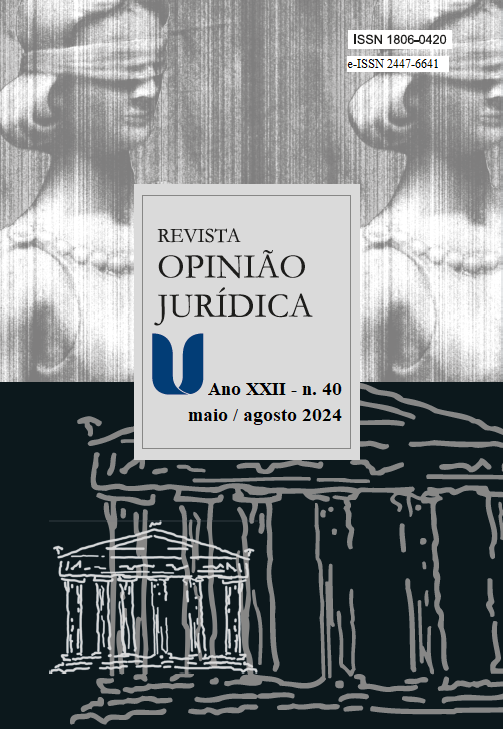Challenges of total peace in Colombia
the case of the Bacrim
DOI:
https://doi.org/10.12662/2447-6641oj.v22i40.p137-161.2024Keywords:
submission to justice, total peace, criminal law, transitional justiceAbstract
Objective: One of the main goals of Gustavo Petro's government is to achieve what he has called "Total Peace." This paper will address the challenges that may arise in a negotiation with the so-called BACRIM, in a country that has several groups outside the law that have prevented it from having a single model of transitional justice, which has led us to consider different formulas to achieve the long-awaited peace.
Methodology: To prepare this scientific article on the challenges of Total Peace in Colombia, especially with the so-called BACRIM, a qualitative approach was used based on documentary review and critical analysis of secondary sources. The methodological process included the identification and selection of key documents, such as laws, decrees, official reports, and relevant academic studies on the peace policies implemented in Colombia in recent years. A contextualization of transitional justice and the peace agreement with the FARC was carried out, which allowed us to evaluate the particularities and current challenges of the Total Peace policy.
Result: It can be concluded that President Petro must bring the ideas of his proposal for “Total Peace” to the daily reality of the regions within the framework of the current institutional and legal architecture, in order to make the viability and sustainability of the project visible and that, halfway through the presidential term, it is becoming increasingly difficult for our President to materialize his great promise of peace for Colombia.
Contributions: The National Government must design the expected Law of Submission to Justice for armed groups, criminal organizations and other actors who intend to be linked to the processes derived from the Total Peace project. Likewise, it must build a massive strategy at different levels for the pedagogical deployment of what the Total Peace project means and intends, so that all social and political sectors have sufficient clarity about its practical scope.
Downloads
Published
How to Cite
Issue
Section
License
Copyright (c) 2024 Revista Opinião Jurídica (Fortaleza)

This work is licensed under a Creative Commons Attribution-NonCommercial-ShareAlike 4.0 International License.
CESSION OF COPYRIGHTS
The submission of articles to analysis for publication on Opinião Jurídica implies the author(s) transfers copyrights to Centro Universitário Christus – UNICHRISTUS for reproduction, publicizing, distribution, printing and publication, according to the Publication Norm 414R, Opin. Jur., Fortaleza, year 12, n. 16, p.1-414, Jan./Dec. 2014, costs to be bore by UNICHRISTUS, in whatever format or means that may or shall exist, in accordance to articles 49 and following of Federal Law 9.610/98.
1. In ceding copyrights, the author(s) agrees to do so in exclusivity, free of charge and for the totality of the work.
2. UNICHRISTUS may make the work, in its entirety or in parts, available for scholarly purposes, without altering its contents, except for small corrections that are deemed necessary.
3. The cession of copyrights is valid in all countries and for versions of the material in its original language or translated into a foreign language.
RESPONSIBILITY FOR THE CONTENT
By submitting an article, the author(s) declare to have sole responsibility for the content of the piece and is(are), therefore, responsible for any judicial or extrajudicial measures referring to it.
1. In case of joint authorship, all authors are considered collectively responsible, except when proved otherwise.



















